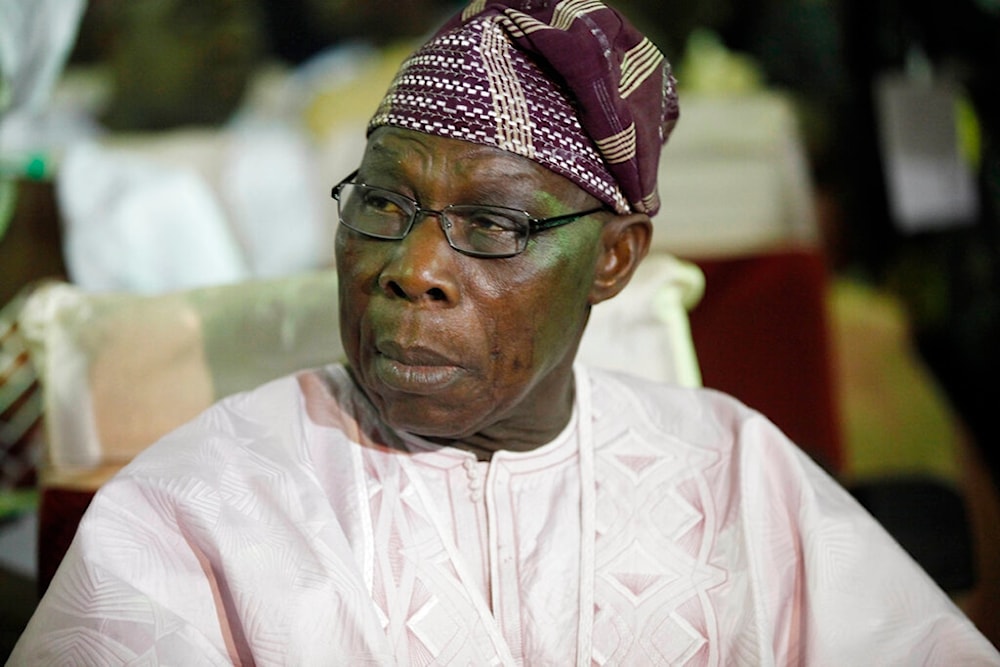Somalia & Ethiopia mediation to be headed by former Nigeria President
Former Nigerian President Olusegun Obasanjo has been appointed by the African Union to head mediation talks between Somalia and Ethiopia amid the latter's geopolitical gambit
-

In this Tuesday, February 26, 2013 file photo, former Nigeria President Olusegun Obasanjo attends a function in Abeokuta, Nigeria. (AP)
To prevent further escalation of tensions between Ethiopia and Somalia, the African Union's Peace and Security Council (PSC) has taken action and asked former Nigerian President Olusegun Obasanjo to lead negotiations and ease the growing conflict.
The strained relations between the two neighboring countries began when the secessionist region of Somaliland signed an agreement with Ethiopia on January 1. This agreement granted Ethiopia control over a maritime port and a military base on the Red Sea, sparking tensions in the region.
While appointing Obasanjo as the mediator, the PSC has also called for other countries to refrain from interfering in the situation. In addition, the Intergovernmental Authority on Development (IGAD) held an extraordinary summit in Kampala, Uganda, on Thursday to address the matter.
Obasanjo faces a daunting challenge as he mediates between the two countries involved in a complex geopolitical gambit.
'Ethiopia must reverse agreement with Somaliland'
In turn, Somalia has made it clear that it won't engage in talks with Ethiopia before Addis Ababa reverses its agreement with Somaliland, according to Africa News.
"The sovereignty and territorial integrity of Somalia have been violated by Ethiopia when it signed an illegal agreement with the northern region [the administration of Somaliland] of Somalia. That is why there is no room for mediation unless Ethiopia reverses its illegal agreement and reaffirms the sovereignty and territorial integrity of Somalia," stated the Somali Ministry of Foreign Affairs.
Before that, on Wednesday, Somalia denied entry to an Ethiopian flight carrying Ethiopian government representatives en route to Somaliland.
The PSC has issued a statement emphasizing the importance of Ethiopia and Somalia adhering to the fundamental principles of the African Union (AU) and international law in their bilateral and international relations.
It is important to note that the AU regards Somaliland as a part of Somalia.
Somalia 'ready for a war' over Somaliland
"Prepare for the defense of our homeland," Somali President Hassan Sheikh Mohamud said, while a senior presidential advisor explained, "We are pursuing all diplomatic options and I think Ethiopia will come to its senses, but we are ready for a war if Abiy [Ethiopian Prime Minister Abiy Ahmed] wants a war."
A memorandum of understanding between Somaliland and Ethiopia, a landlocked country seeking maritime access, was signed on January 1st. The agreement allegedly gave Ethiopia access to build a port in Somaliland, which the breakaway region of Somaliland would bring it legitimacy as it remains unrecognized internationally, as it was reported that Ethiopia would recognize Somaliland's independence as per the agreement.
Somalia, which also does not recognize Somaliland as an independent state but as part of Somalia, declared the agreement void after Mogadishu declared that the deal "caught Somalia by surprise."
Here's what you need to know
Somaliland declared independence from Somalia in the early 1990s amid Somalia's prolonged civil war. Over three decades later, Hargeisa, the capital of Somaliland, has actively sought international recognition within the borders of the former British protectorate. Formal recognition by Ethiopia could offer Somaliland its most significant opportunity yet to address its longstanding international isolation.
Ethiopia lost access to its Red Sea ports in the early 1990s when Eritrean forces controlling Ethiopia's northern coastal region declared independence from the country. Ethiopia, heavily dependent on Djibouti for international trade, sought to diversify its options to mitigate vulnerability, expressing interest in acquiring access to ports along East Africa's seaboard since October. On that note, Ethiopia's assertion of rights and signaling its interest in Red Sea ports has raised concerns among its neighbors.
In a televised address, Ethiopian prime minister Abiy Ahmed stated that Ethiopia should have a say in using the Red Sea ports of its coastal neighbors, drawing parallels to countries downstream along the Nile River negotiating the use of the river, where Ethiopia has built a dam to generate power.
Read more: Somaliland Defense Minister resigns over deal with Ethiopia

 4 Min Read
4 Min Read










